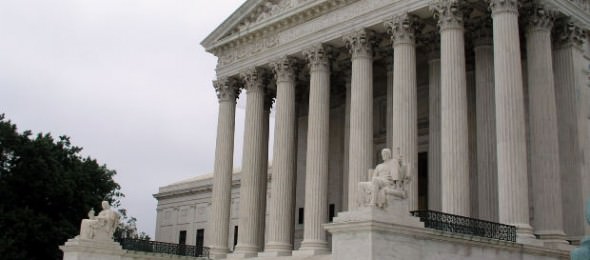University of Texas School of Law Professor Linda S. Mullenix has published, The Court’s 2012 Class Act: A Little Bit of This, a Little Bit of That, Preview of United States Supreme Court Cases, Vol. 40, No. 8, pp. 328-335 (Aug. 10, 2013); U of Texas Law, Public Law Research Paper No. 516. In her paper, Professor Mullenix examines the U.S. Supreme Court’s most recent class litigation and arbitration decisions including Oxford Health Plans LLC v. Sutter and American Express Co. v. Italian Colors Restaurant.
Here is the abstract:
Building on the Court’s heightened interest in class action litigation, the Court during the 2012-13 term issued an unprecedented six decisions dealing with class action issues. However, scholars searching for coherent class action jurisprudence will have to await another day (maybe another decade); consistent with its other recent decisions, the Court rendered class action opinions that favored both sides of the docket. Plaintiff and defense counsel both may claim some large and small victories in this term’s class action decisions.
Nonetheless, the Court continues its plodding case-by-case approach to class litigation that fails to illuminate any overarching abstract theory of aggregate litigation. Instead, the Court’s attitude towards class action litigation is chiefly characterized by pragmatism and not-so-veiled policy concerns. Moreover, the 2012-13 class action decisions highlight the Court’s liberal and conservative division, with the Court’s conservative wing prevailing generally in its antipathy toward class litigation. As the Court’s conservatives incrementally make it more difficult to pursue class litigation, the Court’s liberals have become more vociferous in expressing their dismay over shrinking access to justice for large groups of claimants.
The Court’s six class action cases embraced a grab bag of issues. The two most closely watched cases, Amgen, Inc. v. Connecticut Retirement Plans and Trust Funds (Docket No.11-1085) and Comcast v. Behrend (Docket No.11-864), dealt with class certification requirements. In another pair of appeals the Court again returned to its fascination with problems of class-wide arbitration clauses: Oxford Health Plans LLC v. Sutter (Docket No.12-135) and American Express Co. v. Italian Colors Restaurant (Docket No.12-133). Finally, two appeals addressed jurisdictional requirements for class actions: in Standard Fire Ins. Co. v. Knowles (Docket No.11-1450), the Court considered pleading issues under the Class Action Fairness Act of 2005, and in Genesis HealthCare Corp. v. Symczyk (Docket No.11-1059) the Court focused on standing issues for collective actions under the Fair Labor Standards Act.
This article evaluates the significance and impact of the Court’s six class action decisions during the 2012-13 term, commenting on the Court’s incremental refinement of Rule 23 as well as the Court’s failure to address significant class action issues.
This and other scholarly articles authored by Professor Mullenix are available for your viewing pleasure from the Social Science Research Network.














